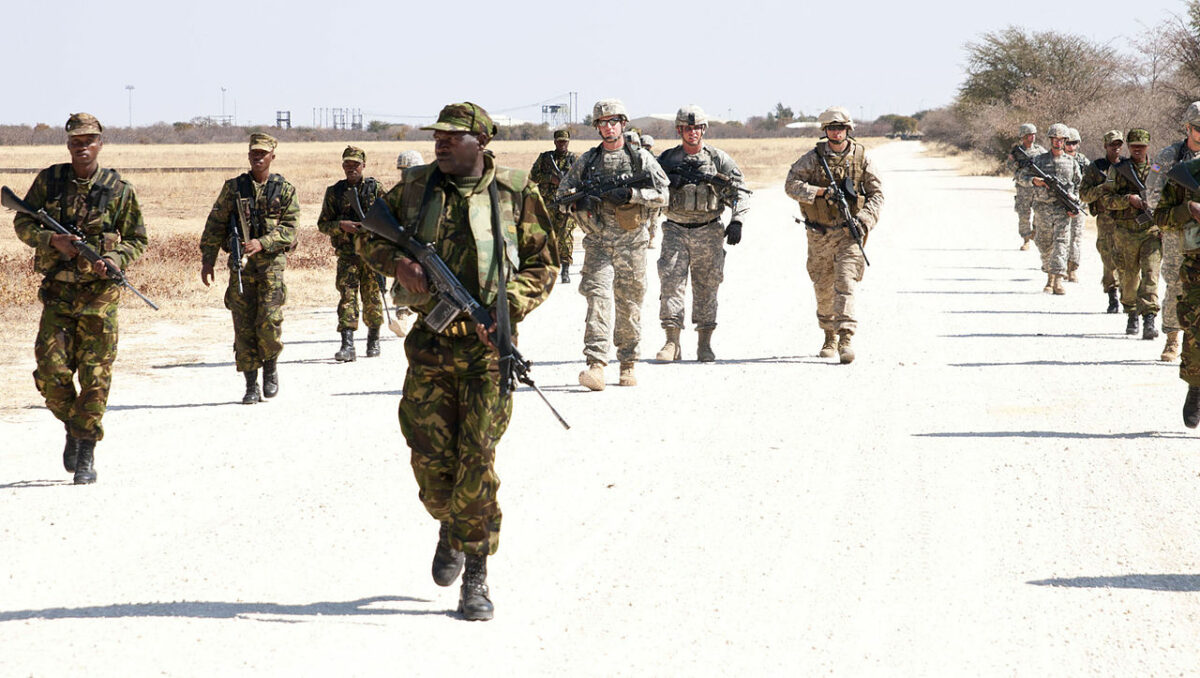In a joint venture, The Russian Academy of Sciences, University of the Free State, and the University of Haifa held an interesting Zoom conference on 17 March 2021 titled “New Frontiers of Terrorism in Africa”. Confirming the titanic shifts in the geopolitical order, former implacable foes, representing top-class research institutes from Russia, South Africa, and Israel, wrestled with the growing terrorist threat to Africa.
The four-hour conference hosted three panels dealing with the radical Islamic terrorism in the Horn of Africa, the general instability in Africa using Morocco and Cameroon and the counter-strategies deployed in those regions as a lens, and finally, terrorist strategies and international responses (or lack of). The fact that delegates from the USA, United Kingdom, France and China were absent may be just as telling as Israel’s presence, which seems to be making a substantial effort to increase its diplomatic footprint in Africa.
Africa is of growing importance to the global economy as well as the world’s future stability. We have witnessed that a volatile and unstable North Africa poses a direct threat to Europe’s security and prosperity. However, there are positive reasons for investing in Africa’s security. The continent holds an estimated 40% of the worlds future resources and 30% of the planet’s population. Before the outbreak of the pandemic, most of the exponential economic growth rates in 2019 emanated from African countries. Importantly, as the West and China populations grow old, Africa has one of the world’s youngest populations, providing much of the future world’s human resource pool. Africa is attracting attention as the future global economic growth point. Certainly, China has taken advantage of Trump’s isolationist policies and expanded its influence in Africa dramatically via massive infrastructure initiatives and investment.
One of the more immediate growing threats to Africa is the proliferation of Islamic extremism, infamously represented in the media with the likes of Boko Haram in Nigeria, Al-Shabab in Somalia and various extremist groups in the Democratic Republic of the Congo, and a myriad of other places. Closer to home in South Africa, is the Islamic terrorist insurgency in Mozambique’s northern province of Cabo Delgado. The conference identified some of the attraction these extremist Islamic groups can offer for young disaffected Africans seeking simple solutions to their desperate plight. These groups provide a stipend to live on, health treatment for the recruit’s family, status within the community and a daily (albeit nihilistic) purpose to wake up to every day. Extremists find a ready and willing audience in regions where the government is ineffectual and corrupt and pays little attention to the local conditions with little or no service delivery. Authoritarian, corrupt governments with poor governance are the most susceptible. These governments quickly lose control over the populations, often in the periphery of the territory, and are no match for the Jihadists who offer a job, money and security in their absence. A strong underlying message can be found for South Africa, where corruption and poor service delivery are a daily challenge.
Dealing with South Africa, Professor Abel Esterhuyse of Stellenbosch University cautioned that the South African government lacks the resources and will to deal with the region’s terror threat effectively. South Africa should be playing a leading role in partnering and dealing with Cabo Delgado’s insurrection, yet its responses have been clandestine and sluggish. Although South Africa seems impervious to terrorist threats of this nature at the moment, growing corruption, porous borders, and the declining effectiveness of the military and the police forces do not augur well. South Africa may not face an immediate threat from Jihadists, but certainly, it faces an onslaught from criminal insurgents who may begin to mimic some of the terrorist methods and military doctrine. Political terror is also on the rise, and there is a growing disregard for the law, with no clarity as to who is ultimately responsible for South Africa’s security.
Delegates were able to offer a strategy in dealing with the rise of radical Islamic terrorism on the continent. Pure military solutions do not exist in what is, in reality, a socio-economic and political problem. Military force must accompany strategies that tackle the underlying reasons for the population’s disaffection. Therefore the solution lies in a holistic approach to counter-terrorism, embracing social welfare, education, service delivery, good intelligence and good governance. The Mozambique government has neglected Cabo Delgado’s population in the face of massive offshore investment in the newly discovered gas fields off the coast. Any solutions curtailing the insurrection will need to offer the population a stake in the region’s newfound wealth as well as a firm military hand. It is only through a multi-faceted approach based locally and overseas that the scourge of spreading terrorism in Africa can be managed. The conference represents a small step in a long haul.

